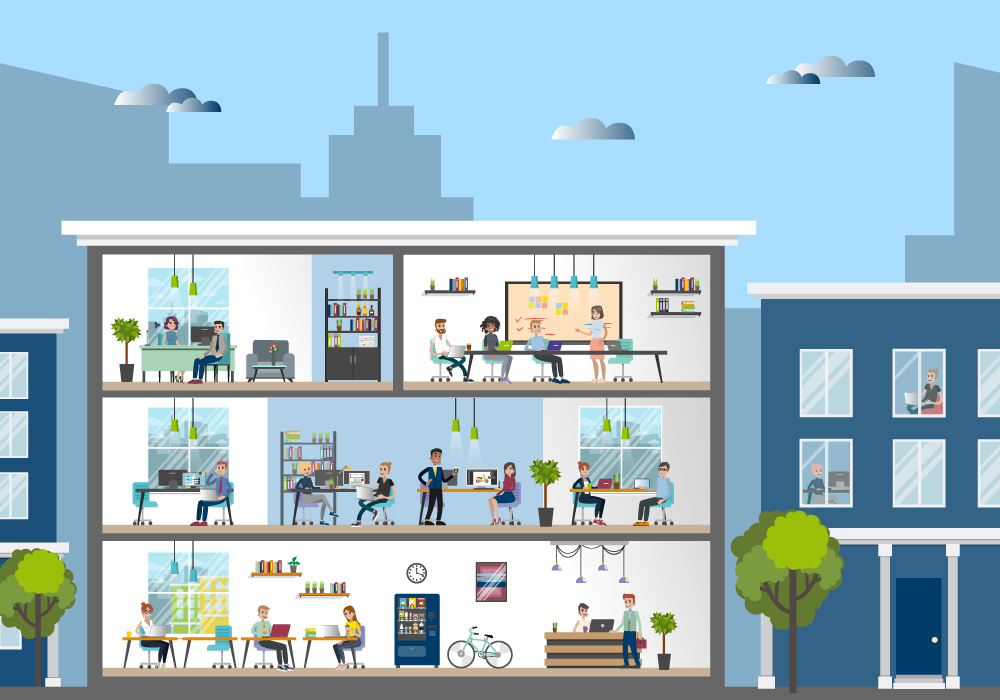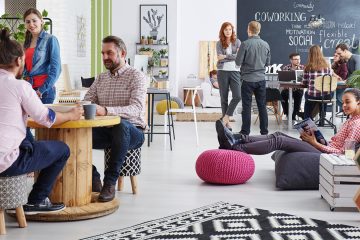SENAT digital: hybrid working – challenges and opportunities of the new norm

Munich, 03 February 2023
Guests at this year’s first event of the SENAT digital series discussed how the flexibility afforded by mobile and hybrid working that emerged from the Covid-19 pandemic can become the new norm. One conclusion is that working in the office and working remotely must be seen as two parts of a single entity in order to achieve the best outcomes for workers and the company.
acatech Executive Board member Frank Riemensperger remarked that workers and companies fell into remote working and hybrid working as a sort of quick fix during the coronavirus pandemic. Now this new flexibility has to be given structure. What that might be is a matter for acatech’s Human Resources Working Group, the forum for Chief Human Resources Officers (CHROs) on the future of work, which he chairs as co-host.
According to Petra Scharner-Wolff, member of the Executive Board of the Otto Group with responsibility for Finance, Controlling and Human Resources, one question that must always be taken into account in relation to hybrid working is “What working environment is needed for what type of work?” This inevitably also means aspects such as culture, leadership, flexibility and lifelong learning. With culture as an example, she pointed out that companies have to find ways to transmit the culture of the organisation also in new forms of working. According to Petra Scharner-Wolff, the whole point of hybrid working is to allow for experimentation initially so as to learn from it later and tweak it as necessary.
Markus Fink, Executive Vice President and CHRO, Infineon Technologies AG, went into the pros and cons of hybrid working. For example, it is difficult at present to achieve the same level of creativity in virtual meetings as in person. One factor in the success of hybrid working is, on the other hand, agreeing a common definition. In different teams there are different phases, such as a phase of intensive work with a client or a phase involving a lot of writing. It would then be up to the teams to have an honest discussion about what is required in which phase to work as a team. Individual flexibility is called for here. As well as lifelong learning and other elements, teambuilding is a factor in the success of hybrid working.
The discussion shows that the successful structuring of hybrid working is an ongoing process.
The subsequent discussion moderated by Luise Ortloff (acatech Office) with the contributors and guests showed that in a crisis people in the workplace are prepared to unlock new solution spaces. This was evident both at the beginning of the pandemic and at the onset of the energy crisis. Change could then happen at great pace. Questions such as “How will we work?”; “How will we lead?”; “Where will we work?” then play a key role.
Hybrid working would always have to be considered as a combination of remote and office working. There is no solution as yet as to what a good balance between both might be. Also the matter of what might be the best management culture for hybrid working leaves room for experimentation. What can be said at this point, however, is that remote working requires feedback talks at shorter intervals so that employees and managers get a feel for the working relationship despite the lack of proximity.
There was much discussion on what “fairness” means in the context of hybrid working. There are jobs that currently allow for very limited remote working or none at all. How should this be dealt with? What constitutes an attractive job in this case? And what role do lifelong learning and digitalisation play here?
In addition, there are cases where it is possible to work from home or out of the office at times but it may be not the best solution for all concerned. The example given was a lecturer who is able to give lectures online but, depending on the setting, this provides less scope for students to interact with one another.
Finally, Frank Riemensperger summed up, “Our working environment has evolved into hybrid working as a result of the crisis; now it has to be given structure and further developed. This is an ongoing process that requires experimentation, listening and learning from one another.”
About the SENAT digital series of events
The acatech Senate comprises well-known persons from leading, technology-oriented companies, associations as well as the major science organisations and from politics. They advise the Academy on matters of strategy, and their experience in industry feeds into the projects. In the SENAT digital series of online events, approximately once every quarter the spotlight is shone on a topical issue from a business, political, scientific and social perspective. The one-hour format is intended for all acatech Senators as well as selected guests.
Further information:
On the “Fit for Future Work” series of debates of the Human Resources Working Group (in German)



